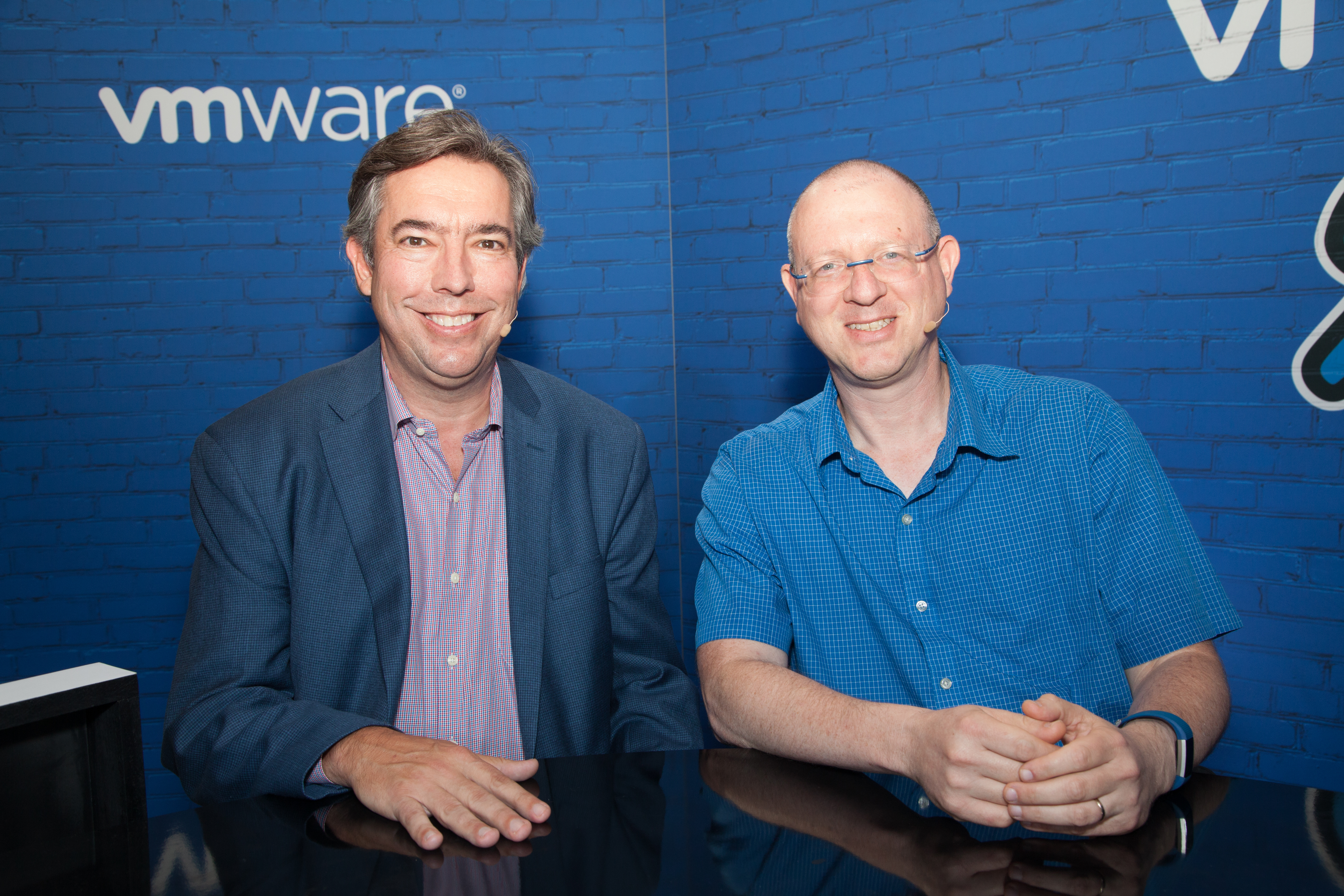 SECURITY
SECURITY
 SECURITY
SECURITY
 SECURITY
SECURITY
As data becomes an asset more and more crucial to enterprise business operations, the world of data protection and management continues to evolve.
“The key word in data protection is data, and I think that wherever it is created and wherever it is managed … customers need to look after it,” said Rob Emsley (pictured, left), director of product marketing, data protection, at Dell EMC.
Emsley and Efri Nattel-Shay (pictured, right), director of product management, data protection and cloud-native apps, at Dell EMC, spoke with Stu Miniman (@stu) and John Walls (@JohnWalls21), co-hosts of theCUBE, SiliconANGLE Media’s mobile livestreaming studio, during the recent VMworld event in San Francisco. They discussed the value of data, how Kubernetes has changed the discussion, and partnerships they are cultivating (see the full interview with transcript here). (* Disclosure below.)
[Editor’s note: The following has been condensed for clarity.]
Walls: Let’s talk about the world of data protection. Everybody’s talking multi and hybrid [computing]… Your world’s changing a little bit because of these new environments and these new opportunities. So if you could just paint that 30,000-foot picture first of thematically how your world is evolving.
Emsley: There’s the old adage that there’s only two things that the customers worry about: One is their employees, and two is their data. So as we’ve seen the adoption of cloud as an infrastructure model, and you’re starting to see many customers extend their on-premises infrastructure to the cloud. And using the cloud for production-level applications … often they’re told, ‘You got to do something about your data.’ So that’s led to all vendors, especially ourselves, over the last several years really expanding the portfolio and capabilities that we have from an on-premises-centric environment to the multicloud.
Miniman: What’s different when we’re talking about cloud-native applications from a data protection standpoint? What do you have to think about differently? Is it microservices, architecture, and containers fundamentally changing the way things are done?
Nattel-Shay: Some customers are taking what they have right now and they move it into cloud-native infrastructures. A lot of customers are building new applications and new workloads, and they build it on top of new applications — so they basically build a whole new set of applications and infrastructure and want to combine them together. And they come to us and ask us, “How do I protect this?” And these things spin up, spin down, move around. They have very different life cycle than the traditional applications.
Emsley: What’s changed in the last couple of years around the deployment and usage of Kubernetes, the deployment of containers … one of the most fundamental changes is the introduction of persistent volumes. And as soon as persistency comes into the mix, that’s where things start to change.
Walls: As the concerns about data protection have been elevated … has that created a different approach from your clients to you? Is there a different kind of attention being paid to this or different kinds of concerns than maybe three, four years ago?
Emsley: It’s interesting. I mean one of the things we run every couple of years is a global study — we called it the “Global Data Protection Index.” This year, we interviewed 2,200 IT decision-makers, and we kind of asked them about how are they valuing data protection and also how are they valuing data? And the one thing that has definitely changed is that the value of data to them has become more critically important. I think it’s always been important, but I think as they start thinking about data as capital, they are starting to realize that it’s only capital if you’ve got it. If you don’t have it, it’s nothing to you.
Watch the complete video interview below, and be sure to check out more of SiliconANGLE’s and theCUBE’s coverage of the VMworld event. (* Disclosure: Dell Technologies Inc. sponsored this segment of theCUBE. Neither Dell nor other sponsors have editorial control over content on theCUBE or SiliconANGLE.)
THANK YOU